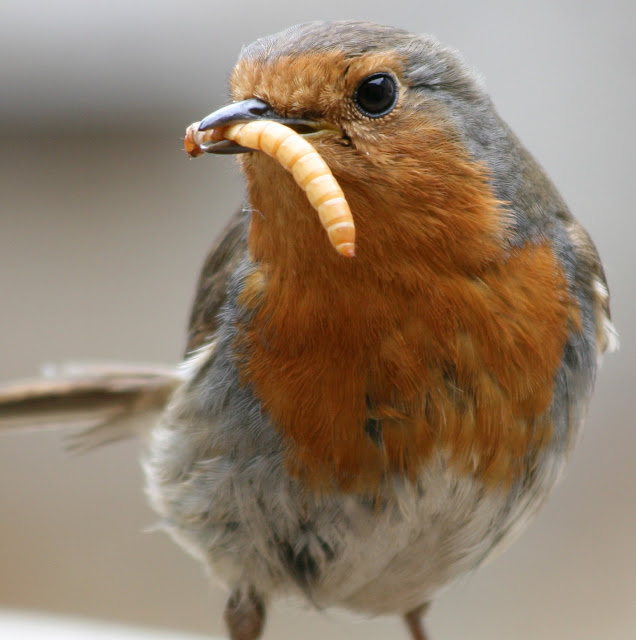Can Birds Eat Chocolate?
There's no denying that most birds have a "sweet beak." Fruit, sweet potatoes, and baked goods are favorites of theirs. Once you've shared one sweet food with your bird, he'll demand for anything he sees you munching on, and it can be tempting to share a sliver of cookie or candy.
As difficult as it may be, it's best to prioritize your bird's health and inquire about the safety of the treat you're about to share. Chocolate is one of numerous elements that are harmful to your bird, and while he may not die right away if he eats your cookie, there is always the possibility that he will, as well as other short- and long-term health problems.
Why Are Birds Toxic To Chocolate?
Caffeine and theobromine, two compounds found in chocolate, can raise your bird's heart rate, cause hyperactivity, seizures, or tremors, and even induce cardiac arrest in little quantities. Additionally, some birds may get vomiting and diarrhea as a result of eating chocolate.
The more cocoa a chocolate contains, the more caffeine and theobromine it has, which enhances its toxicity to birds. Even milder chocolates, on the other hand, include milk, which birds cannot digest, as well as sugar, which is harmful to their health.
My bird, on the other hand, ate chocolate and is OK.
It happens all the time. You offer your bird a lick of chocolate ice cream or a nibble of a candy bar without comprehending the danger and without noticing any negative consequences.
When you learn that chocolate is hazardous to birds, you may wonder if your case is unique or assume that the knowledge doesn't apply to you.
This is a potentially risky assumption. Even if your bird shows no symptoms, the coffee and theobromine may be raising her heart rate to dangerously high levels.
Allowing this to happen even once is harmful to your bird, and repeated exposures to the toxin may result in erratic behavior and even death. Even if everything appears to be in order, allowing your bird to consume chocolate puts her in danger.
What If Chocolate Is A Minor Ingredient?
If chocolate is included as an ingredient in a food product, it is almost certainly not meant for consumption by animals. Even though the amount of chocolate in the food item is minimal, it is still "human food" and should not be provided to your bird.
Because of their small size, even small amounts of sugar, caffeine, artificial flavoring, and coloring can have a disproportionately large impact on their health. Birds' digestive systems are not designed to process the same type of food we eat, and because of this, even small amounts of sugar, caffeine, artificial flavoring, and coloring can have a disproportionately substantial negative impact on their well-being.
What Should You Do If Your Bird Consumes Chocolate?
Don't be alarmed if your bird eats a piece of chocolate. Take a moment to consider how strong his stolen taste's chocolate content was.
He'll probably be alright if he gets a nibble of a baked item, Nutella, or something with a modest bit of chocolate this time. However, for the following hour or two, you should keep a tight check on him, looking for tremors or any other unusual behaviors or symptoms.
If your bird ate chocolate with a high cocoa content or ate more than a taste, you should take him to an avian vet or at the very least call them to find out how concerned you should be. For more information, contact the Animal Poison Control Center.
If your bird exhibits any signs of toxic poisoning, make an appointment with your avian veterinarian as soon as possible.
When Your Bird Begs For Chocolate, What Should You Do?
Birds who are accustomed to sharing your snacks—or who simply think chocolate looks exceptionally delicious—will most likely pester you to share any chocolate you're eating. No matter how charming or persistent they are, don't give in to their begging.
If you have difficulties saying no, it's probably preferable to eat chocolate goodies in a different room so your bird doesn't see them. You can also keep one of your bird's favorite bird-safe treats on hand and feed it instead, such as a sunflower seed, almond, or apple slice.
This manner, you can share a snack without endangering your bird's health.
Chocolate is only one of the items that should never be given to your bird. If it's hazardous to people, it's obviously not good for your bird! However, some foods that people can have in moderation should be avoided by birds.
The following are some of them:
- Coffee and any other caffeinated drink
- Alcohol
- Avocados, apple seeds and fruit pits
- Meat and dairy
- Onions and garlic
- Nightshades
- Food that has been fried or processed and has a lot of salt or sugar



Comments
Post a Comment